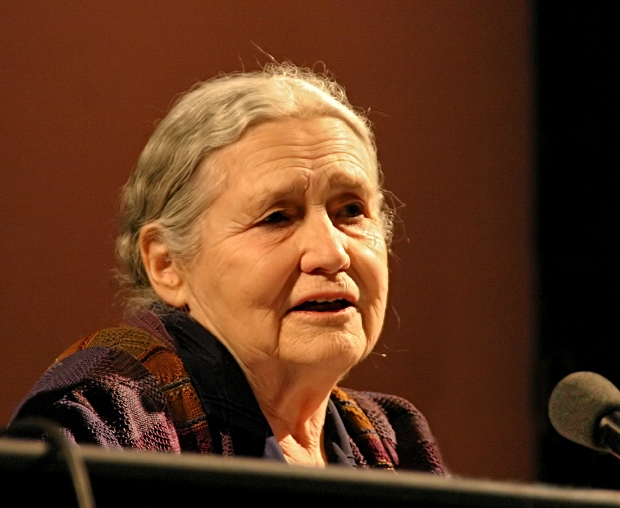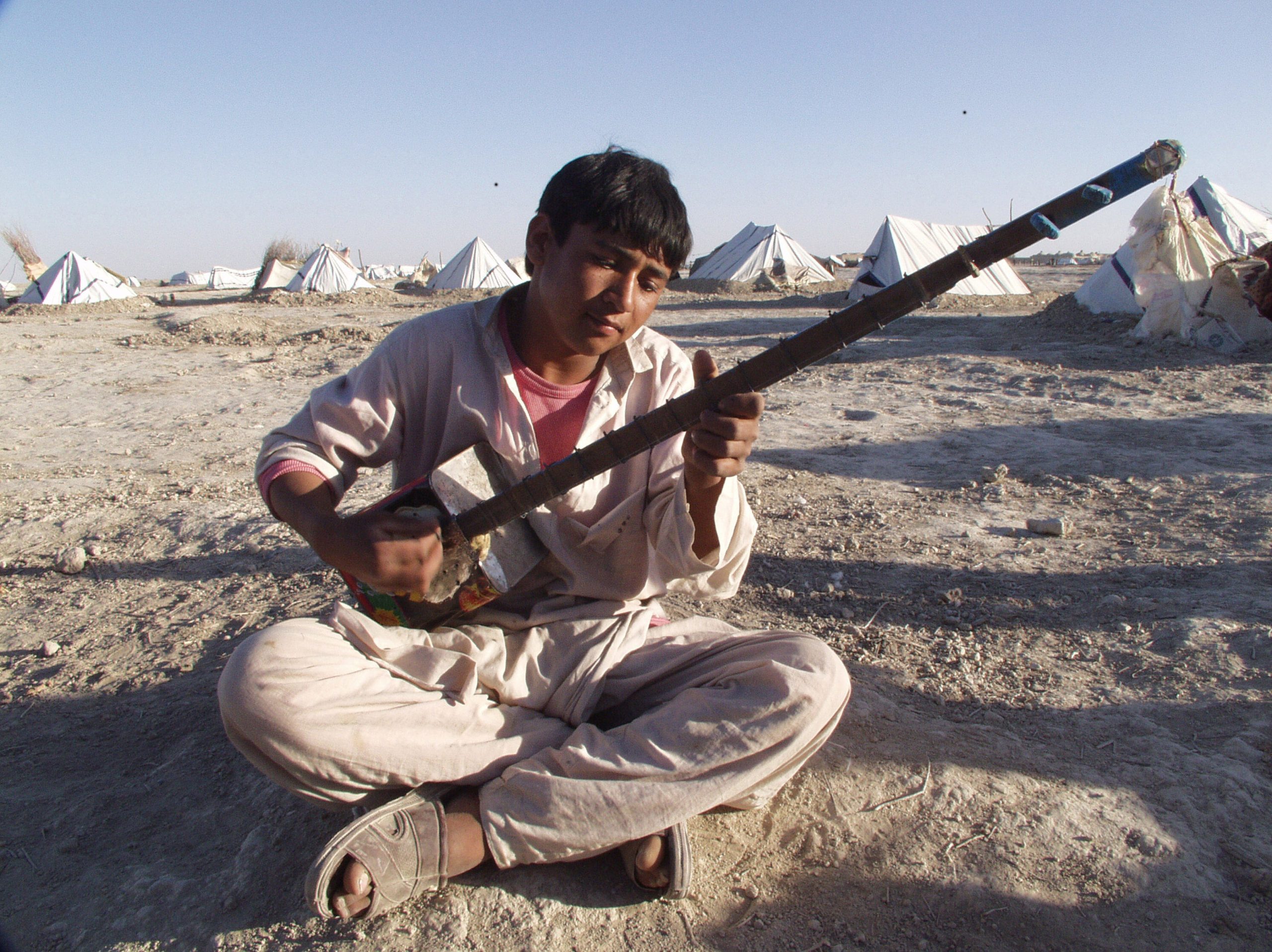 Recent revelations about conditions inside China’s Gulag camps by a former prisoner make the impressions of privileged visitors seem almost frivolous. Yet what we found was unexpected and, at the very least, a witness to China’s capacity for change.
Recent revelations about conditions inside China’s Gulag camps by a former prisoner make the impressions of privileged visitors seem almost frivolous. Yet what we found was unexpected and, at the very least, a witness to China’s capacity for change.
Three of us, Michael Holroyd, Margaret Drabble and myself, went to China for the British Council, as guests of the main writers’ organisation, for over two weeks. Each of us was independently told that we would find sullen, unsmiling populations who would surround us and stare, and who were afraid to speak to foreigners. They would also spit everywhere all the time.
An American journalist who has worked in Beijing for five years said all this was true, up to three years ago: people were so afraid of drawing attention that even the bicycle bells were muted.
We went to Beijing, Shanghai, Shian and Canton (now Guangdong), all full of tourists from Europe, but even more from Japan, South Korea and other adjacent countries. We found smiling, laughing, robust and friendly people who did not spit, did not stare and were concerned with foreigners only to be helpful, to make money out of us, or to learn to make money.
The students in the universities were well informed about British and American literature and at least as sophisticated as their American counterparts.
This is a country on the make, determined to do well, full of energy, confidence, competence. We did not see one drunk person. Every city greets you with slogans like ‘China welcomes you with a billion smiles’.
As for being afraid, everyone talks freely about everything, particularly the Cultural Revolution. The euphoria of the times is such that people will say confidently there is no poverty in China (perhaps hoping there soon won’t be), yet if you walk down a minor street in Shanghai or Beijing there are the bare rooms where whole families are putting themselves to bed under a naked electric light bulb, reminding me of the ‘brick lines’ in Africa. The gap between rich and poor must surely widen.
My most informative encounter was with a group of magazine editors and writers, in their thirties and forties. We met publicly at a Friendship Restaurant. When I commented that to the outside world China gives the impression of continuous 100% swings in policy, with the implication that this was a swing to liberalism, and why weren’t they afraid their now so open criticisms might be held against them, they said, ‘What liberalism?’
Clearly they had expected more from China’s glasnost. They told me of a friend’s novel about conditions in the Chinese army, which are every bit as bad as those in the old Soviet army.
Yet controversial books are published: Jung Chang’s Wild Swans, already published abroad in translation, is expected soon. With a certain scepticism, however. A democratic writer, the idol of youth, has upset the literary establishment with her irreverent, rude, crude stories and poems, but they are forced to accept her because of her popularity. She has not been prohibited nor censored. In short, the situation is fluid. Novels and stories about the
Cultural Revolution are plentifully printed.
We met hardly anyone who had not suffered; even the highest were affected — for instance, the former Minister of Culture, Wang Meng. At that private encounter at the Friendship Restaurant every person around the table told what had happened to them.
When asked what he felt about being defamed and tortured in prison, one replied that the victims were, at other times, themselves the victimisers.
The Cultural Revolution is thought of by us as a war against people, but the young iconoclasts also destroyed orchards, gardens, even mulberry trees and silkworks, let alone temples and shrines. In a traditional courtyard in
Beijing the little stone lions that often guard homes had all had their heads knocked off. When with these lively, sensible, practical, humorous people, it is not easy to hold in one’s mind the knowledge that these same people, just like oneself and one’s friends, were so recently part of that lunacy; or that the entire population was willing, at a word from Chairman Mao, to stand — for hours, or days — beating pots and gongs to prevent birds from landing anywhere so that they fell out of the sky dead or so weak they could be clubbed to death — in myriads, in billions. Birds had been categorised as pests. So few birds are left in China; any wild bird you do see is in a cruel cage.
Two phenomena, both much discussed, seem portents of danger to the country. One is the 100 million people forced off the land by mechanisation, all on the move. But ‘what is 100 million?’ seems to be the feeling. They will be absorbed. These displaced ones do casual labour, pilfer, are petty traders or become bandits on an old and familiar model. They can always go back to their villages — so it is said — where they will be looked after.
But for how long will these people be regarded as the responsibility of their villages when they contribute nothing? At a farm near Guangdong (the city is like a vast building site, and the traffic horrendous, so the 10-mile journey took two-and-a-half hours each way) they told us that 10 years ago every member of the couple of hundred villagers had worked on the farm, but now 15 people did all the work. The others were working as labourers in the building industry. This is a revolution of traditional China so profound it must make previous revolutions seem like minor upheavals. In this village we were proudly shown the loudspeaker that not long ago howled out Party directives or banged out loud martial music nearly all the time. Now it was silent.
The other thing everyone talks about is what they call ‘The Little Emperor problem’. The law that there must only one child per family is more or less enforced in the cities, sometimes with cruel pressure. Everywhere you see wonderful babies and little children, each one being adored by attendant grownups. Each is a little emperor (or empress, but, it seems, fewer of them) who gets the best of everything, from love to education. But in the provinces it is not so easy to enforce the law, and there are many farmers, number unspecified, who have three or four children.
These are badly educated or not educated at all, and will always be poor, unless China decides to educate and feed them, but that would mean a reversal of a policy regarded as essential — the curtailment of population.
Once again, as before in China’s history, ignorant and poor peasants will look in at the privileged towns, full of their rich and educated contemporaries.
We did not go into the poor parts of China. Our guide said confidently that there were no poor areas, no poor farms. She did not know there was controversy over Tibet, which was a place where she and friends talked of taking a holiday. She was well educated, and demonstrated one of the reversals of policy when she recited the list of Chinese dynasties from their beginning, long before Christ, or even Confucius.
Until recently, history taught in schools began with Communism: the imperial past was ignored.
It seemed to me during this trip, and remains with me now, that the most astonishing thing is that five years ago, less, it meant prison or torture or even death for conversations of the kind we were having, so easily, at all levels. But that loudspeaker on the roof of the communal hall on the farm had not been removed, only switched off.
China makes me think of a great lumbering farm cart that has had the most modern of engines fitted to it and is rattling along at 50 miles an hour instead of five. Rushing ahead it certainly is; but the strains and stresses may, almost certainly will, again and again slow or check the cart, even change its direction in unexpected ways.
As China grows strong it will influence the whole world. Let us hope its way of reducing everything to simple and simple-minded formulae does not catch on. The successes of Political Correctness show that we should not be too confident.
This article was originally published in Index on Censorship magazine, September 1993.
Click here to subscribe to Index on Censorship magazine, or download the app here












